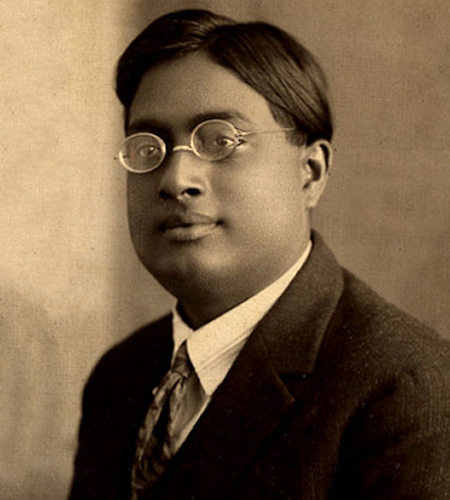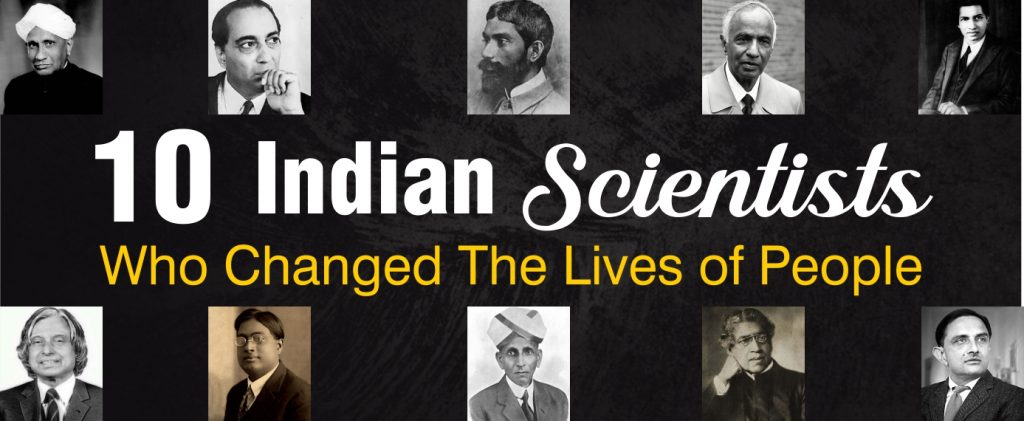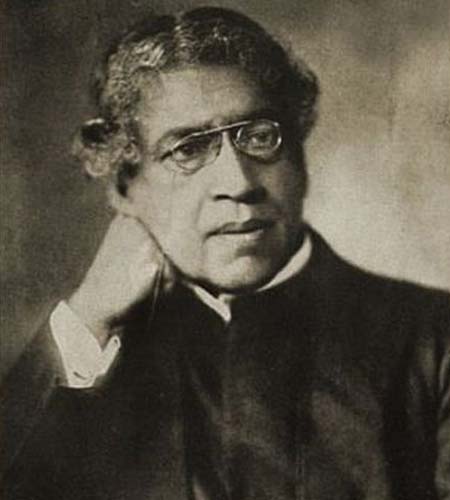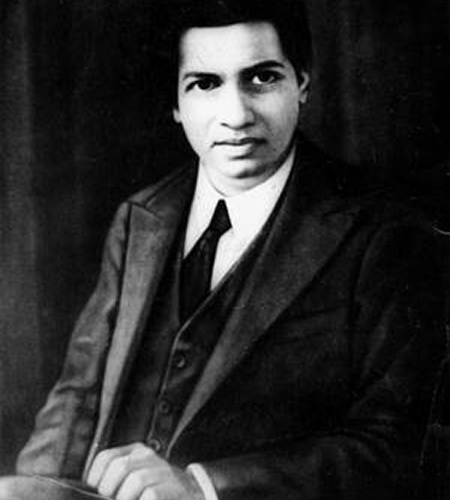India has a rich history of geniuses and scientists whose work has been highly appreciated across the globe. Some of our Indian scientists have created history by changing the world and setting benchmarks of innovation. In our country, great mathematicians and scientists like Aryabhata have been born who invented zero and introduced the world to the knowledge of the number for the first time. Here, we have created a list of 11 Famous Scientists in India and their wonderful contributions. Let’s take a look at how they changed the world as we know it!
Top 10 Famous Scientists in India
He discovered that, when light traverses a transparent material, some of the deflected light changes in wavelength. This phenomenon is now called the Raman scattering and is the result of the Raman effect. Raman also worked on the acoustics of musical instruments. He was the first to investigate the harmonic nature of the sound of the Indian drums such as the tabla and the mridangam. He died of natural causes on 21 November 1970 in the gardens of his institute (the Raman Research Institute in Bangalore).
His invention ‘Crescograph’ helped him prove that plants are living entities by detecting very small motions within its tissues. In his lifetime, his other major contributions were in physics and archaeology. He was the first Indian to be elected as a fellow of the royal society in 1920 and hence famous Scientists in India.
Early in the 20th century, he developed exceptionally efficient ways of calculating pi that was later incorporated into computer algorithms. It was one of his most celebrated findings. His birth anniversary is celebrated as national mathematics day every year.
In 1948, he became the first chairperson of the atomic energy commission of India. He played a key role in convincing the Nehru Govt to start India’s Nuclear Programme.
He was the founding director of two institutions – Bhabha Atomic Research Centre and Tata Institute of Fundamental Research (TIFR), both of which led to immense growth and development in the field of research. In 1954, he was honored with the Padma Bhushan for his invaluable contributions to science and engineering.
For his relentless contribution to society, he was awarded Bharat Ratna in 1955. Some of his inventions are still considered engineering marvels. He was also awarded the British knighthood by King George V and hence has the honorific “sir”. His birthday is celebrated as engineer’s day in India every year.
S. Chandrashekhar was awarded the Nobel prize in Physics for his mathematical theory on black holes. His most celebrated work is on the radiation of energy from stars. Named after him, the Chandrasekhar limit defines the maximum mass of a stable white dwarf star.
Dr. Kalam started his career by designing a small helicopter for the Indian Army. Kalam was also part of the INCOSPAR committee working under Vikram Sarabhai, the renowned space scientist. In 1969, he was transferred to the ISRO where he developed the Satellite Launch Vehicle (SLV 3) at the Vikram Sarabhai Space Centre, which put the satellite Rohini into orbit. He also became the director of two projects – Project Devil and Project Valiant after the success of the SLV programme in 1970.
After working for two decades in ISRO, Dr. Kalam was appointed as the CEO of IGMDP (Integrated Guided Missile Development Programme). He was the Scientific Adviser to the defense minister.
He also supervised the multiple nuclear tests carried out at Pokhran in 1998 and made India a nuclear weapon state. In 1994, Dr. Kalam collaborated in designing a cost-effective coronary stent called ‘Kalam-Raju-Stent’ that made healthcare accessible for all. From light combat aircraft to rugged tablet computers, he contributed to every part of the country’s welfare.
Dr. Kalam, born on October 15, 1931, left millions of people in shock as his soul departed on July 28, 2015. His personal journey has been a source of motivation for all students who want to be successful.
Read: 5 lessons to get inspiration from the great APJ Abdul Kalam
He also established the Community Science Center, with an objective to spread scientific knowledge, to create interest in science, and to promote experimentation among students, teachers, and the general public. The establishment of the Indian Space Research Organisation (ISRO) was one of his greatest achievements. He was awarded the Padma Bhushan in 1966 and the Padma Vubhushan after his death in 1972.
Soon after finishing his doctorate, he became a professor at the Presidency College in Calcutta. There he was awarded to the Presidency University in honor of Acharya Prafulla Chandra Ray.
Satyendra Nath Bose was a famous theoretical physicist who hailed from Calcutta, West Bengal. He is best known for his work on quantum mechanics in the early 1920s, and working with Albert Einstein on the Bose-Einstein Condensate and as the namesake of the boson, or “God particle.” |
 |
In 1954, the Indian government honored Bose with the title Padma Vibhushan and awarded the second-highest civilian award in India. Five years later, he was appointed as the National Professor, the highest honor in the country for a scholar.
You May Also Like To Read: Inspiring Stories of Successful People. Know how they risen from failure to fabulous!
Apart from these extraordinary names, we cannot overlook the contributions of other Famous Scientists in India like Meoseghnad Saha, Har Govind Khurana, Salim Lal, and others.







































